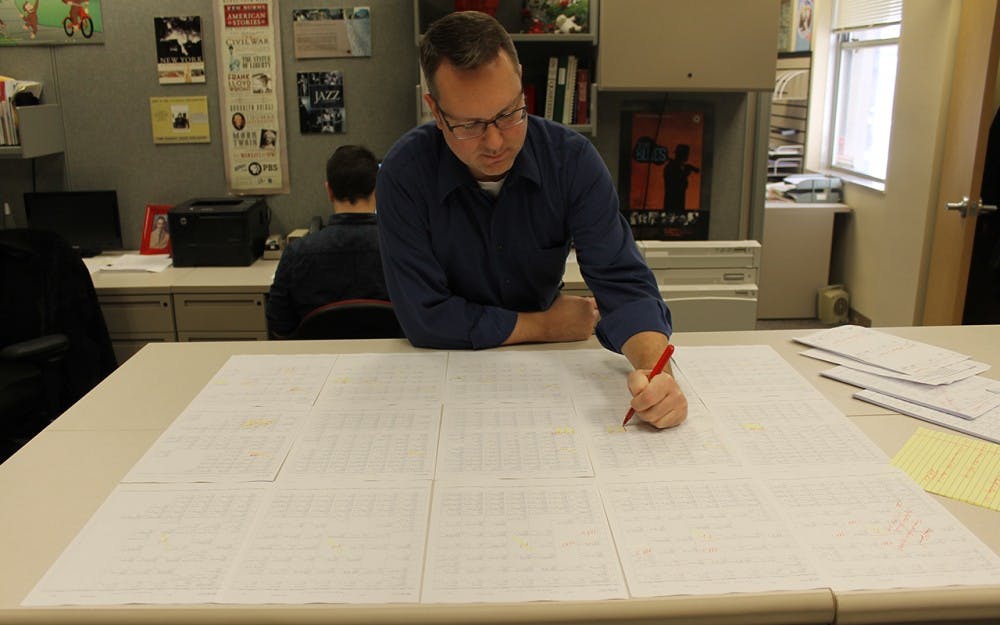President Trump recently proposed billions of dollars in budget cuts to most government agencies to pay for a large spending increase for the military and homeland security.
The new budget still has to go through Congress, but this new plan is causing a lot of talk pertaining to the future of many government-funded entities, such as the Environmental Protection Agency, which suffered a 31-percent budget cut.
The Department of Education was cut by 14 percent, and smaller independent agencies, such as the National Endowment for the Arts and the Corporation for Public Broadcasting, would lose 100 percent of their government funding, according to the New York Times.
Bloomington is the home of public broadcasting stations WFIU and WTIU, which are both a part of Indiana Public Media and have funding from the Corporation for Public Broadcasting.
The new budget would eliminate all funding for the CPB. which has been around since 1967 and is the largest source of funding for public radio, television, and related online and mobile services.
“The CPB is forward-funded by two years, so the money they are threatening to cut wouldn’t hit us until about 2019,” stations operations and content director of WTIU Brent Molnar said. “The reason why it is forward-funded so the budget can’t be affected by political influence immediately.”
The CPB has helped create a regional journalism center at the station.
Without CPB, WFIU and WTIU probably wouldn’t have gotten this journalism center off the ground. That is what is at stake, Molnar said.
WTIU is already getting ahead on preventing this loss of funding by going to Washington, D.C., and explaining to legislators how the work it does helps the community.
Molnar said he spent time meeting with legislators around Indiana and explained to them the importance of WTIU and what it does for education, public safety, civic discourse, election coverage and news coverage.
“Our content is tied to Indiana classrooms with head start programs and amber alerts that increase public safety,” Molnar said.
Not only are these programs tied to education, but the station acts as a classroom for many students trying to get into the media business.
There are many student employees.
Prospective IU student and programming assistant Jared Cleaver works at WTIU.
“I want to get into film and television,” Cleaver said. “I find this new budget very disheartening because I grew up watching things like ’The Friday Zone.’ You never think about how much these shows affect you when you are older, and it is sad to think about how we are not going to be able to reach as many people or educate as many kids as we can now.”
If the budget passes, Molnar said stations would survive, but a substantial cut would jeopardize the programs and services provided.
“The cut translates to WFIU and WTIU with a loss of $1.3 million of our overall funding,” WFIU station operations director John Bailey said.
Bailey said a possible issue the stations could run into include a lack of stability in the funding from IU, which is more than a third of the station’s budget. But there are stations nationwide that rely mostly on government funding.
“We are also worried about all of the public stations that rely way more heavily on federal funding that may be in communities that do not have as much listener support like we do,” Bailey said.
There are many local stations all across the United States that would be affected by these budget cuts and that lack in viewers and listeners.
“With less revenue flow, these stations might go under, which means that NPR and PBS might have to make cuts themselves, which could end up with only a few public broadcasting survivors and huge gaps across the country where there is no public radio or TV,” Bailey said.
The station has been trying to find its strongest message points to explain to people why it matters in hopes that the station will survive the new budget.
“This is the most serious threat to public broadcast in over 20 years,” Bailey said. “We are sending our listeners and viewers to ‘Protect My Public Media’ to sign a petition to tell their congress representatives that public broadcasting is worthwhile to them.”






